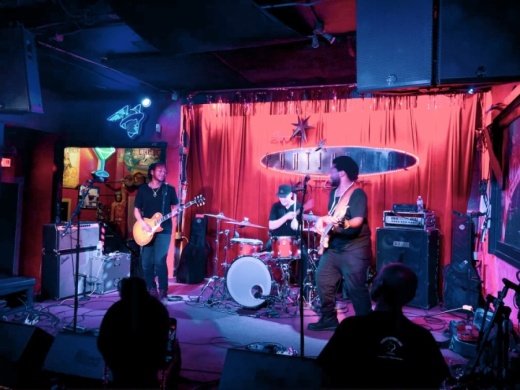Council's latest attempt to sustain those businesses is a fresh interpretation of the state law that governs how cities spend hotel occupancy taxes, a valuable revenue stream generated by a city-levied tax on hotel stays. With a unanimous vote, City Council told City Manager Spencer Cronk to designate $15 million in hotel tax revenue—typically set aside for historic preservation projects—to finance the preservation of music venues and restaurants the city deems “iconic.”
The move puts a different lens on how the city can use its hotel taxes.
Right now, the city presses a 9% tax on hotel stays; 70% of the revenue from that tax funds the Convention Center, its operation, debt obligations and expansion, and the remaining 30% is evenly split between funding historic preservation projects and cultural art initiatives. The city already sends some of the cultural arts money to a Live Music Fund, which was created in 2019 and is aimed at a variety of industry programs, such as paying opening acts at local clubs. However, in creating the program, City Council determined through their reading of state law that the money could not be used to purchase or financially buoy music venues.
In its latest interpretation of state law, City Council has determined that by deeming certain sites as “iconic” to the city’s brand, they could use the hotel taxes’ historic preservation fund to acquire, subsidize or otherwise help ailing music venues and restaurants. This new Iconic Venue Fund would draw $15 million from a $30.6 million hotel tax fund the city set aside between fiscal years 2015-16 and 2018-19.
The city’s new Austin Economic Development Corporation will be tasked with managing the Iconic Venue Fund’s $15 million and determining the eligibility of venues and restaurants. The resolution City Council passed included venues that would be eligible, from Stubb’s, Mohawk, Continental Club, Antone’s and Hole in the Wall to Jo’s Coffee, Little Longhorn Saloon, Cisco’s and the Elephant Room.
The new program was led by District 5 Council Member Ann Kitchen, who called its potential “very exciting" in her now-approved resolution, co-sponsored by Council Members Leslie Pool, Kathie Tovo and Alison Alter.
District 6 Council Member Jimmy Flannigan applauded the new read of state law.
“These are the venues that help fill hotel rooms with tourists, who then pay the hotel tax. The more tourists we have, the more funds we'll have for all the funds,” Flannigan said. “It strikes the perfect balance between trying to achieve the objectives of state law and the lawful use of the money.”
For venues that may not qualify as “iconic” venues, the city is also looking into designating some as tourist information centers aimed at promoting tourism. With historic preservation, cultural arts and convention centers, Texas Tax Code Chapter 351—the code governing hotel tax expenditures—also allows the money to be spent on tourism promotion.
At the same meeting, City Council created a new Chapter 380 tax incentive program for struggling music and arts venues, restaurants, bars and child care facilities, which offers tax rebates to landlords in the industry willing to renegotiate long-term leases with tenants.





